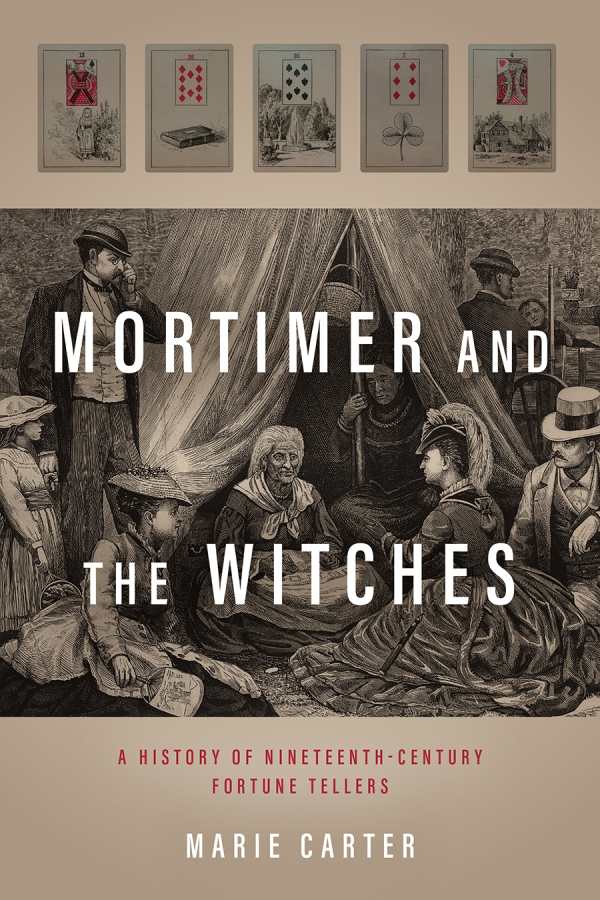Mortimer and the Witches
A History of Nineteenth-Century Fortune Tellers
Marie Carter’s cultural history text Mortimer and the Witches focuses on infamous fortune-tellers and the nineteenth-century New York cityscape they occupied.
Mortimer Thomson wrote for a variety of newspapers under the pseudonym Doesticks, rubbing shoulders with New York literary giants and documenting the Civil War. He visited women who read cards and palms and who entered trances for soothsaying purposes, all with the intention of documenting them in satirical style for the general public. These caricatured women were almost all lower class. And the interlocutor was not so distant from his subjects in the end: Thomson struggled with debt and alcoholism, abandoning both of his children to be raised by relatives.
Each chapter opens with a card from a tarot alternative, the Lenormand Cards, lending symbolism to the stories of Thomson’s profiled fortune-tellers. Excerpts from books, newspaper articles, and diaries flesh out the tale as well. Incorporating supplemental research into the spiritualism movement and the history of prostitution, the lives of the fortune-tellers emerge as a distillation of the challenges that American women faced in the nineteenth century, including a lack of autonomy, a lack of job opportunities outside the home, and susceptibility to the worst abuses of men and the state. Fortune-telling, the book posits, may have become popular because it allowed women a modicum of control and a chance at financial self-determination. Race relations before and during the Civil War loom large, too, as in the chapter about Black Williamsburg resident Mr. Grommer, the sole man among the fortune-tellers Thomson encountered.
Mortimer and the Witches is an unflinching cultural history covering the social ills of nineteenth-century New York through the lives of women who were, at the time, memorialized in mocking print.
Reviewed by
Jeana Jorgensen
Disclosure: This article is not an endorsement, but a review. The publisher of this book provided free copies of the book to have their book reviewed by a professional reviewer. No fee was paid by the publisher for this review. Foreword Reviews only recommends books that we love. Foreword Magazine, Inc. is disclosing this in accordance with the Federal Trade Commission’s 16 CFR, Part 255.

